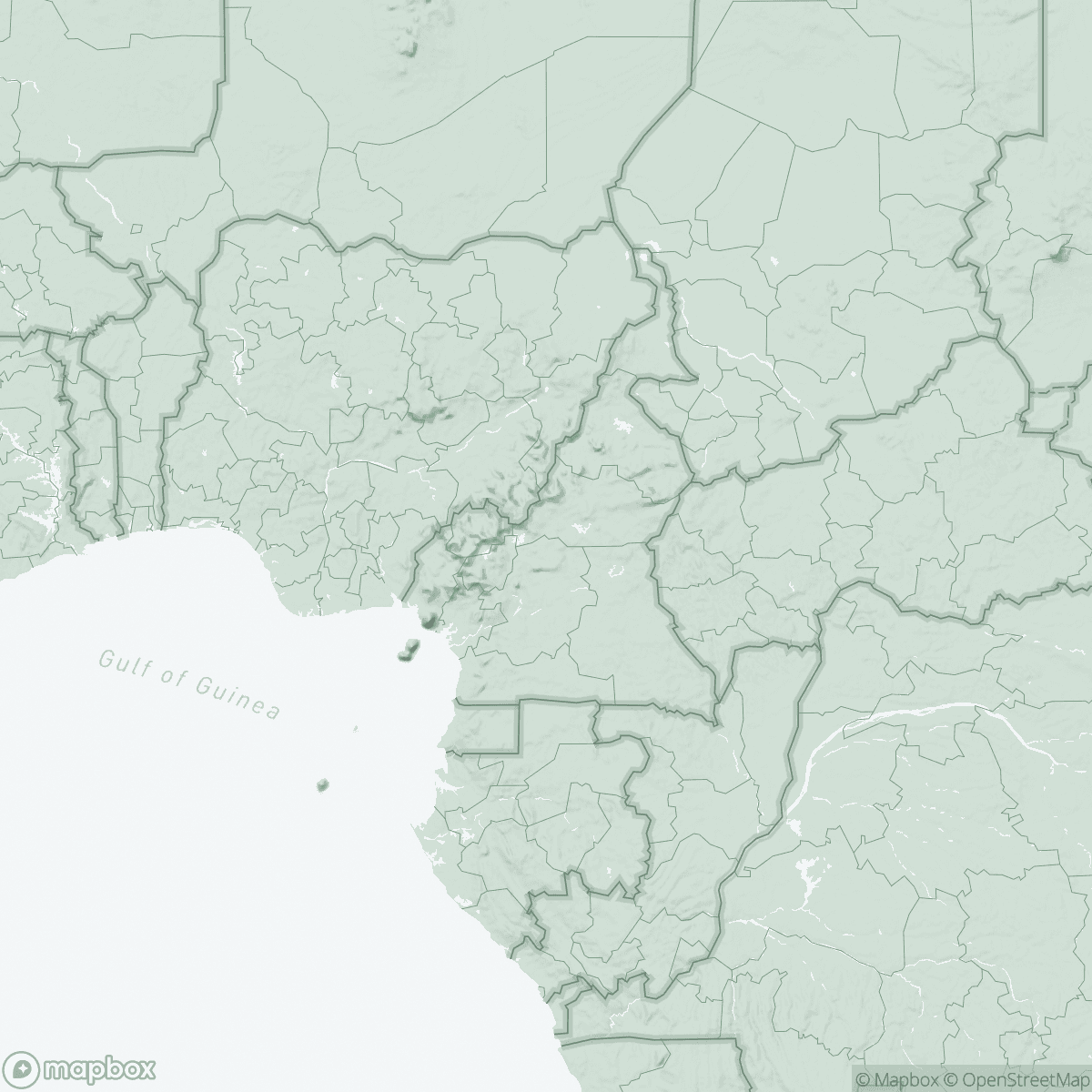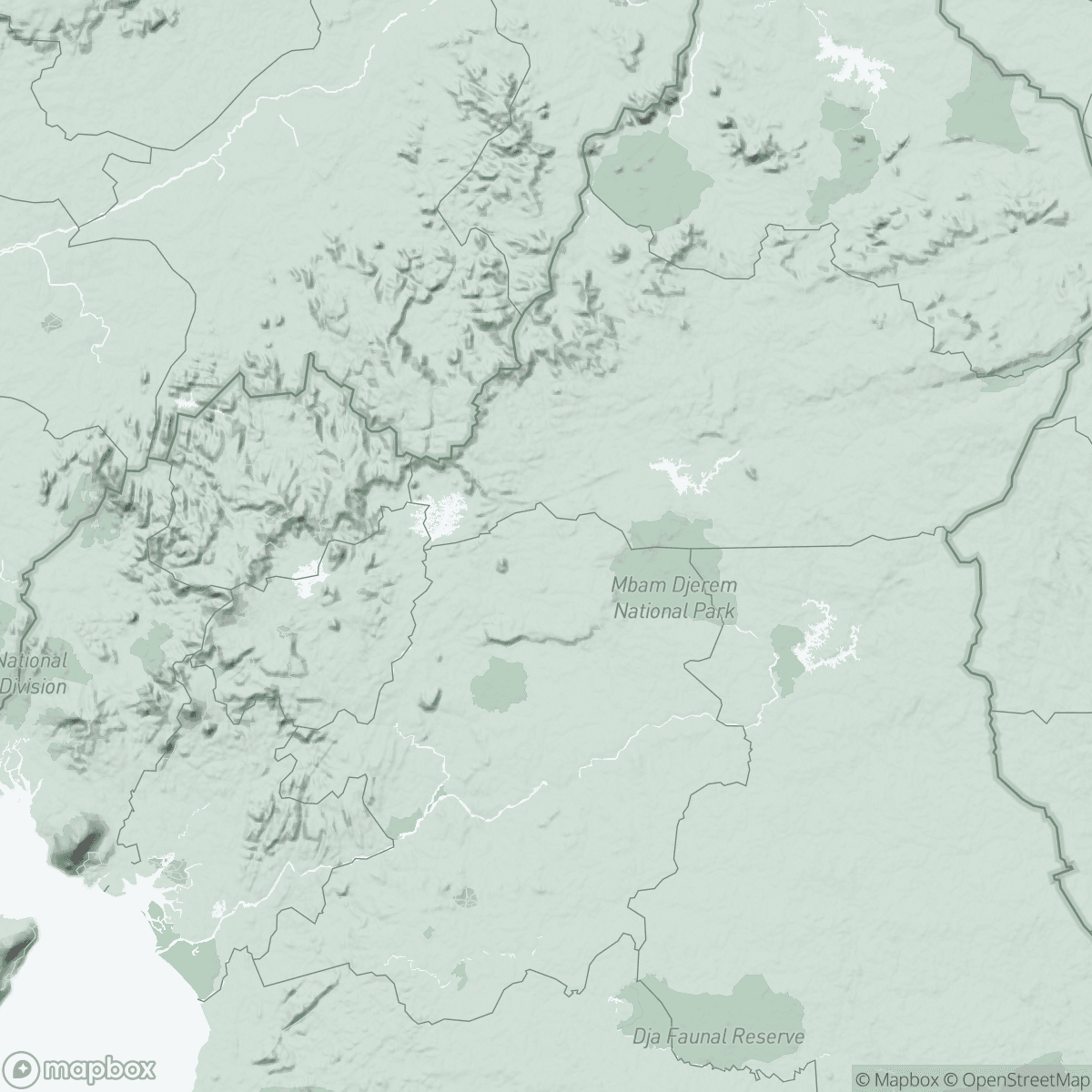
Four months on, an ongoing nightmare for MSF colleagues detained in SW Cameroon
In 1 click, help us spread this information :
On the morning of 26 December 2021, Marguerite and Ashu were sent with an MSF ambulance to the Tinto area to pick up a man with a gunshot wound. While the vast majority of MSF ambulance movements are not related to the impact of the violence – most are linked to the urgent transport of children with malaria, women in labour or those injured in road accidents – taking care of victims of gunshot wounds is not unusual for MSF in the area. Yet, Marguerite and Ashu could not have imagined what awaited them this time.
The ambulance had some trouble locating the injured man, but finally found him at around eight o’clock in the morning. They stabilised him and put him in the ambulance, which then headed towards Kumba, in case the patient needed to be transferred to a higher-level hospital for complex surgery. The 27-year-old patient had no identification documents, which is not uncommon in Cameroon.
MSF communicated, as agreed with the authorities, this movement: the departure point of the ambulance, its destination, the type of patient it was transporting, whether or not the patient had an identity document, and whether or not they were accompanied by anyone. Despite this not being standard MSF practice, this procedure was vital in this context to prevent ambulances from being blocked at checkpoints for long periods of time, which could be detrimental to patients. Since October 2021, when the procedure for communicating with the authorities was formalised, 132 MSF ambulance transfers involving patients in various emergencies have taken place without any problems.
Neither Marguerite nor Ashu knew who the patient was, or what was his role within the separatist group. They only knew that he was a wounded man in need of medical emergency assistance.
The two MSF colleagues were subsequently arrested and detained in Buea prison, where they remain four months later.
The ambulance set off at around nine o’clock in the morning, with Ashu driving and Marguerite in charge of the patient. She began to fill in the transfer forms on the patient that would later be handed over to the hospital in Kumba. While Marguerite was still filling in the form with the name given by the patient, they were stopped at the Nguti checkpoint.
Despite the explanations they gave, they were denied passage, ordered to turn around and escorted back to Mamfe. The two MSF colleagues were subsequently arrested and detained in Buea prison, where they remain four months later.
In detention for conducting humanitarian work
The patient was guarded by the military authorities and cared for in Mamfe. Marguerite and Ashu were kept for questioning for a few hours, released and ordered to return the next day to give their statements. The following day, 27 December, they were detained, first at the gendarmerie (armed police force). They were publicly accused of being involved in an operation to exfiltrate a terrorist, of falsifying transfer documents, and of giving the patient a false identity. They were accused of collaborating with separatist rebels in the area.
When informed of these charges and the detention, MSF teams in South-West thought there had been a misunderstanding that would be quickly resolved, and contacted authorities to prove that they had followed the full administrative process agreed on. None of the explanations given by MSF, by the legal service provided to Marguerite and Ashu, and Marguerite and Ashu's own version of what happened, have led to their release four months on.
MSF has reiterated that it followed the administrative process agreed with authorities for when a patient is not carrying identification. Treating and transferring the wounded and sick is the basis of what humanitarian organisations do in situations of conflict and violence, with no regard for which side of the conflict the wounded person participated. Providing emergency assistance to people in life-threatening situations is protected under Cameroonian law.
MSF has also specified that, as a neutral and impartial medical organisation, it has been supporting wounded patients from both sides, including those from the state armed forces. MSF has made it known that the transfer and care of gunshot wounded patients is a minimal part of the work in South-West Cameroon. MSF representatives have explained that MSF’s contact numbers are known in the area to allow people to use them for emergencies and that MSF must talk to all parties to a conflict to ensure access to people and to ensure the safety of the teams. By providing these clarifications and explanations to the Cameroonian authorities, it has continuously sought for the immediate release of its colleagues.
As requested by the Ministry of Defence, the Mandela International Center, an independent Cameroonian organisation, published a report exonerating Marguerite and Ashu of any wrongdoing, as well as MSF itself. The report demanded the immediate release of the two colleagues. MSF is also calling for their immediate release.
Weeks after the arrest of Marguerite and Ashu, on 19 and 20 January 2022, two other MSF workers were also arrested, separately, in a different case. They are accused of collaboration with secessionism. As with Marguerite and Ashu, MSF is convinced in the legality of the tasks they performed for the medical organization. In both cases, MSF is following the Cameroonian legislative process and it is from the conviction that its colleagues were carrying out humanitarian tasks with the neutrality, independence and impartiality with which humanitarian activities should be conducted that MSF demands their immediate release.
MSF took the difficult decision to suspend activities in South-West Cameroon on 29 March to focus on obtaining the safe release of its colleagues.
MSF took the difficult decision to suspend activities in South-West Cameroon on 29 March to focus on obtaining the safe release of its colleagues. MSF finds itself in an untenable position: on the one hand, its medical activities are required, and on the other hand, those providing medical support run the risk of being persecuted for doing their work. MSF has a duty to the people its care for, but it needs basic preconditions to be in place that would enable to carry out medical activities in a safe and secure environment. It’s been clear that these conditions or preconditions are no longer there, and that the medical mission is not only unprotected but prosecuted. MSF can’t put our staff at risk.
Since the detention of the four colleagues, MSF representatives have engaged with the Cameroonian authorities, at local and national levels, by providing information related to its medical activities to facilitate their release, but to no avail. MSF remains available to continue the dialogue with the authorities and resolve this issue as soon as possible.

